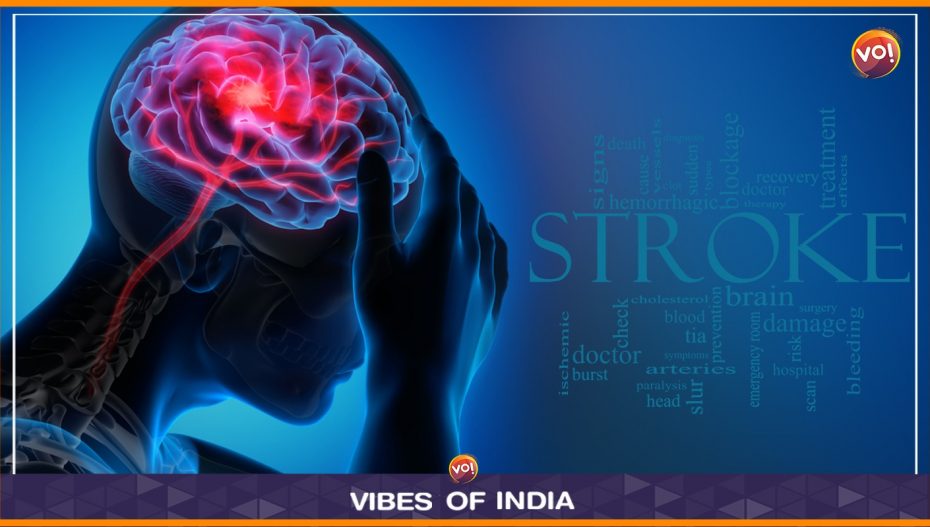The greatest calamities in life often happen without alarm bells. Vibes of India, during a series of health-related features, has quizzed medical practitioners and doctors about the ailments that end human life so abruptly. While the degenerative effects of diabetes, the Silent Killer, are felt over time, heart attacks and brain strokes are often sudden.
The growing instances of brain strokes ought to make us alert to the way our bodies function and their vulnerabilities. In India, one death from brain stroke is recorded every 4-5 minutes. The Statista reports that the number of cases of cerebral stroke in senior citizens across India in 2050 is forecast to be about 3.3 million.
But lives can be saved with presence of mind. As neurologist Dr Bhargesh Patel tells VOI during an interview, it’s essential to be equipped with the right information to respond spontaneously to handle such cases.
“You must act fast. Rush to the hospital,” he says.
He details the symptoms that warrant our quick thinking. The one who has suffered the stroke isn’t walking steadily. There could be a sudden blurring of vision. Faces droop and arms are not firm. There could be a severe weakness on one side of the arm. Speeches appear slurred and convoluted. Sentences are incoherent. Patients are confused and not oriented to time and space.
“Stroke is a stoppage of blood supply to the brain cells,” Dr Patel explains. “It happens either on account of some blockage of the vessel or some rupture in it. The blood supply to the brain is compromised.”
The haemorrhagic stroke, he expounds, is infinitely more dangerous. He elaborates on the difference. An ischemic stroke is caused by blockage of blood vessels. In this case, blood doesn’t flow to the brain cells causing their gradual degeneration. The ischemic stroke gives us time to react. It opens a golden period, as it’s called, for advanced treatment and the damage can be controlled. The haemorrhagic stroke, in contrast, is quick to strike. Here blood vessels are ruptured, permanently damaging the brain cells.
He adds that the nature of strokes can’t be differentiated merely by seeing patients. Dr Patel says, “You must rush to a hospital where CT scan and MRI facilities are available. If there’s an ischemic stroke, we give a booster injection to restore blood supply. If blood is restored, the damage is controlled. If there’s a large clot and the patient comes to us within 24 hours, we diagnose the problem through angiography and give the right injections. We have the technology to remove the clot with instruments.”
The timing (of taking patients to hospitals) is the key. “If you’re bringing the patient after 24 hours, we can’t give injections. We can’t remove the clots in such cases,” he says.
Now, a piece of statistic that should make women cautious. Women have more brain stroke events than men. According to a medical journal, the lifetime risk of stroke is higher for women than men, with a one in four risk of stroke for women after the age of 25.
“It (brain stroke) is not gender-specific but the risk is more pronounced in women owing to hormonal changes,” he says, adding that estrogen may be associated with stroke risk. “Estrogen is prothrombotic; it can cause clots which lead to stroke.”
Youth need to be alert too, for there’s a growing incidence of strokes in the age group of 25 to 30, he warns. “Earlier, we would see cases of diabetes in patients in their 50s. Nowadays, we find patients in their 20s and 30s who are obese and diabetic. Even youngsters suffer from strokes. After every decade, there’s a double risk of stroke among those past their 60s.”
As the conversation nears its end, Dr Patel offers a checklist for even those who are seemingly healthy. Monitor your blood pressure regularly. Ensure it’s less than 140/90. Like it’s applicable for diabetic patients, good habits are the key. Junk food high on fats must be replaced with leafy vegetables and fruit. Smoking and alcohol consumption also put us at risk of strokes. “Do regular exercises. Maintain a schedule comprising 30 minutes of aerobic exercise or vigorous exercise for five days a week,” he concludes.
Watch the full interview here:
Also Read: Amreli: Wife Hangs Self After Husband Dies Of Heart Attack













